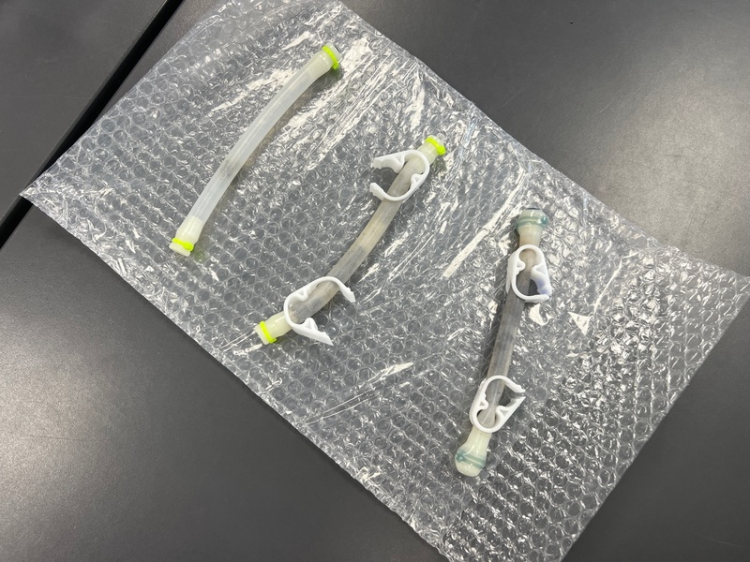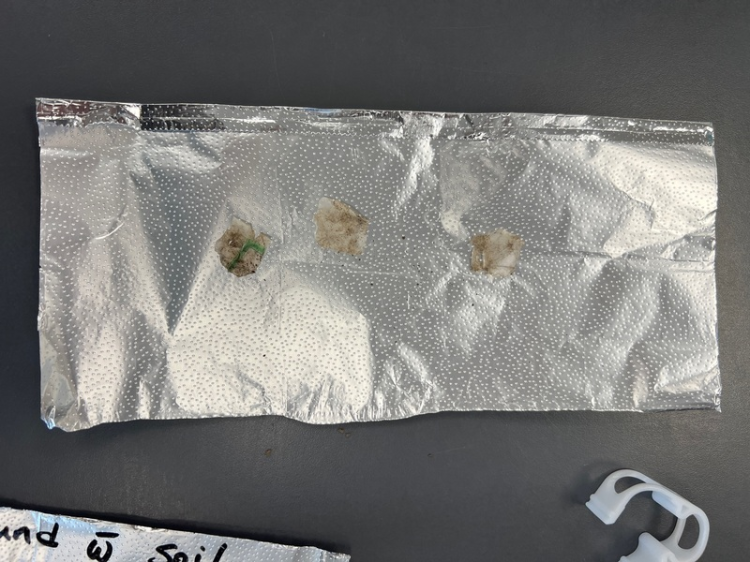An experiment by four UGDSB students sent into space with NASA astronauts as part of the Student Spaceflight Experiments Program (SSEP) has returned with interesting results.
The experiment set out to see if soil bacteria can biodegrade compostable plastic in a microgravity environment faster than on Earth. The students theorized that if soil bacteria could break down compostable plastic in microgravity, then food waste could be collected and degraded and then provide soil nutrients to help grow other plants and food.

In order to test the theory, a sample with three 2cm x 2cm pieces of a compostable bag inside a tube with soil was sent to the International Space Station (ISS) for four weeks in November 2024. A duplicate sample was stored on Earth in order to compare the difference in degradation between the two. A third sample with only compostable plastic pieces and no soil was also stored to determine how much soil played a factor in breaking down the plastic.

The samples were opened at Elora PS on January 17, 2025, with teachers Keri Hons and Sherri Woodland from Alma PS overseeing the process. Once opened, the students instantly noticed a difference in the soil - the space sample was damp and clumpy, while the Earth sample was dry and crumbly.
Besides the difference in soil, the pieces were roughly the same between the space and ground samples. Pieces that were surrounded by more soil decomposed the most, shrinking to around 1.5cm x 1.5cm, while pieces not embedded in as much soil stayed close to the original 2cm x 2cm (the sample with no soil stayed roughly the same).

While the findings show that microgravity didn't change the bacteria decomposition, they do indicate that composting in space would be similar to on Earth, which will help astronauts determine how much they can compost and at what rate.
Rickson Ridge PS is the next UGDSB school to participate in the SSEP with an experiment being sent in the spring.













